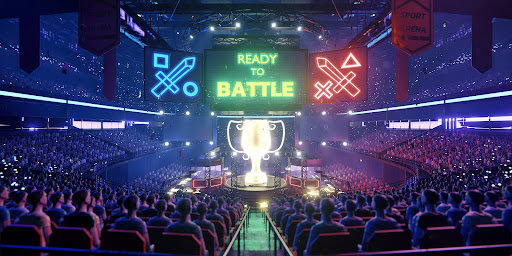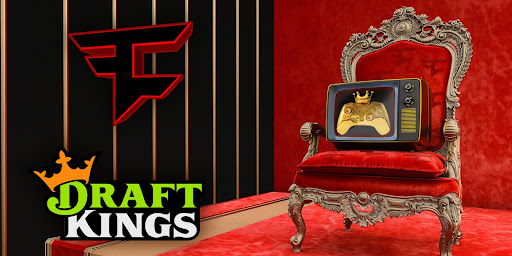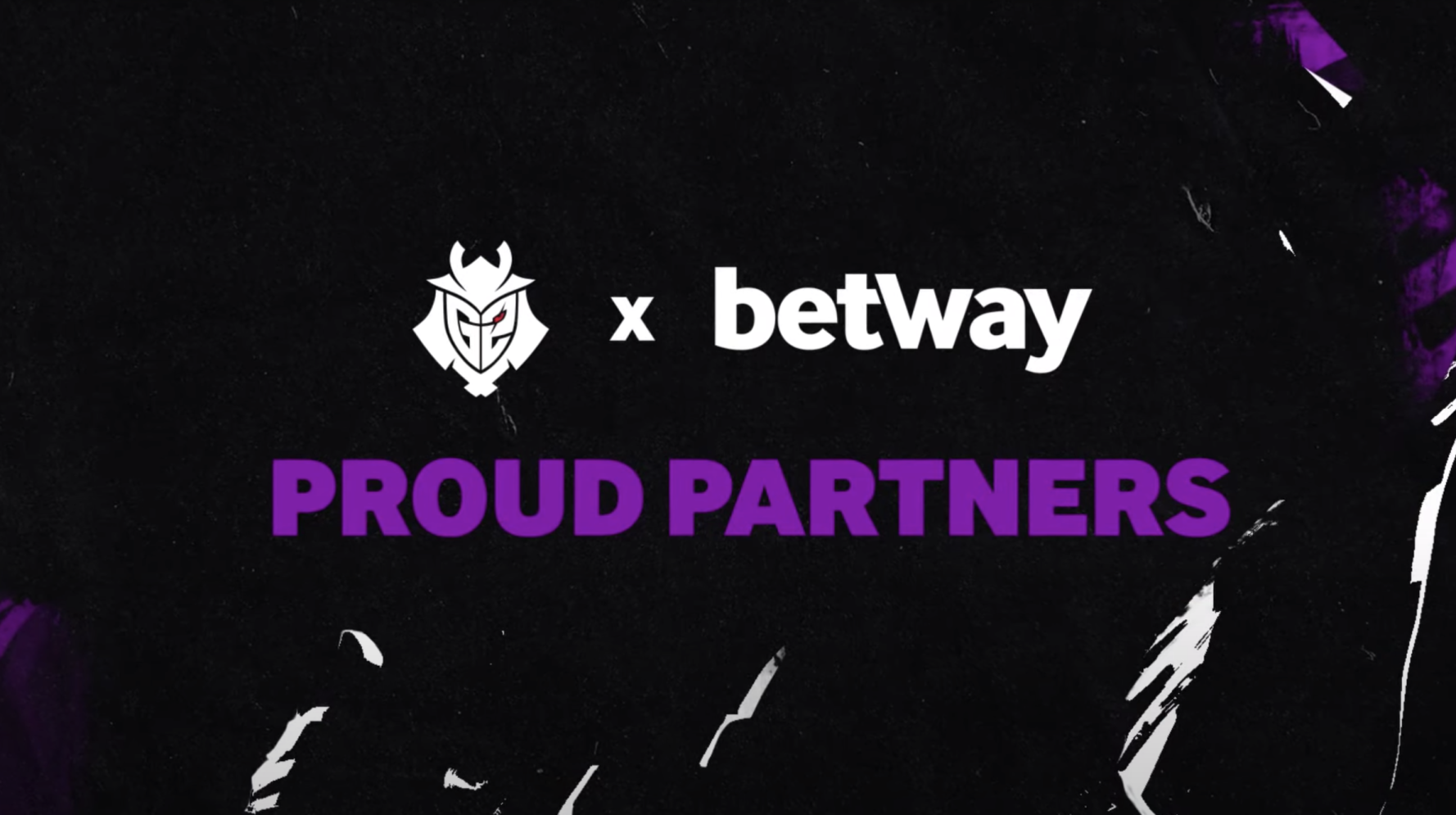It should come as no surprise that betting companies have identified opportunities in the esports market as it continues to experience rapid growth.
As a result, bookmakers — endemic and non-endemic — are rapidly changing the sponsorship landscape, similarly to how betting partnerships now dominate most traditional European sports.

RELATED: PandaScore breaks down the esports betting ecosystem in new whitepaper
Within traditional sports, there are ongoing debates as to how appropriate betting sponsorships are, with countries like the UK bringing in multiple advertising restrictions limiting adverts to around match times (which was itself only allowed to protect sport funding) and even limiting who can appear in them. This has created minimal allowances for betting companies to advertise around sports. Nevertheless, the sports betting sector does create valuable sponsorship opportunities for many sports clubs.
In esports, the international scale of competitive gaming tournaments is likely to make gambling sponsorships much more complicated as time goes on, with legalities varying on a country-to-country basis.
The esports betting ecosystem has already seen instances of uncertainty. Betting company GG Bet dropped its sponsorship of Heroic after the Esports Integrity Commission banned a CS:GO coach for integrity issues last year.
With iGaming (the industry’s preferred terminology for online gambling) companies moving into the sponsorship market, esports has seen a dramatic uplift in commercial revenues. This could also be a sign of the wider public perception of competitive gaming changing, with more people taking the scene seriously.
With sponsorship deals coming in throughout CS:GO and Dota 2, as well as organisations opening new revenue streams, this market is here to stay, despite some misfires and controversies.
A brief introduction about esports betting
Similar to traditional sports, there are countless esports titles that can be bet on. As such, it’s important to highlight which titles are classed as ‘tier-one’ games within the esports betting sector. The ‘big three’ are CS:GO, League of Legends and Dota 2. Organisations associated with these titles are generally the teams that receive the most attention from iGaming companies.
Sports simulation titles, such as FIFA, have also seen an uplift in betting activity. Some operators reported that this was notably prevalent during the pandemic when football and other traditional sports weren’t available.
[primis_video widget=”5183″]
RELATED: NFTs in the FGC – The next iteration of fighting games?
There was a time when many expected Overwatch to be a prime market for esports betting sites, however, this never really materialised. This highlights the risk of immediately jumping on to trends when looking at producing odds as an esports bookmaker. Perhaps the esports betting sector’s next potential tier-one opportunity is VALORANT, largely down to the game’s publisher Riot Games and its similarity to CS:GO from a betting perspective.
Prominent industry betting partnerships
The majority of esports betting sponsorships are targeted at CS:GO, and there are a few reasons for that. One key reason is that the title’s geographic audience plays a major factor. South Korean and Chinese audiences are impossible to supply due to gambling being illegal. The USA is also complex with state by state laws, meaning that games with audiences outside of these regions, for example in Europe, are far more appealing to potential betting sponsors. This leaves CS:GO as a frontrunner.
1XBet bypassed sponsoring specific esports organisations last year and went straight to partnering with ESL, one of the biggest esports tournament organisers in the business. With ESL running CS:GO and Dota 2 leagues, the deal was seen as a significant partnership for both the organiser and the sportsbook.
CS:GO esports series BLAST Premier has also established a fleshed-out partnership with bookmaker Betway. Alongside a range of content activations featuring Betway, BLAST Premier integrates the bookmaker’s branding into its broadcasts.

RELATED: FaZe Clan announces partnership with DraftKings
2021 ushered in significant developments within US esports betting, opening up room for sponsorships. Most notably, DraftKings has teamed up with prominent North American gaming and esports organisation FaZe Clan. The deal also includes sponsorship across the players’ individual channels, making it one of the most prominent esports betting team sponsorships to have happened to date.
DOTA2
A variety of DOTA 2 esports organisations have secured notable betting sponsorships. In 2021, PSG Esports, the esports arm of football club Paris Saint Germain, signed a partnership with Betway for its Dota 2 team PSG.LGD. This is probably one of the more obvious sponsorships, with football clubs long being sponsored by sport betting companies.
BOOM’s sponsorship from esports bookmaker Rivalry is definitely one of the biggest deals to go through. It can’t quite be pinned to any one esports title because BOOM operates teams in everything from Valorant and DOTA through to mobile esports.
Following back to back The International championships in 2018 and 2019, OG secured a partnership with Fun88. In the partnership announcement, the organisation claimed that betting has become part of the ecosystem, allowing fans to ‘engage even closer’ with teams. The deal included a variety of branded content produced with OG and Fun88, which has become the norm within esports collaborations. Ultimately these deals open a lot more engagement opportunities for both parties.
Team Spirit, another notable Dota 2 organisation, had extended its partnership with bookmaker Parimatch, however, this deal was terminated following Russia’s invasion of Urkaine.
League of Legends
In terms of betting sponsorships, League of Legends is perhaps one of the strictest titles. Despite many organisations within the League of Legends scene having betting partners, the competitive rulebook forbids the display of gambling brands. As a result, most of these partnerships are aimed towards the organisations’ other teams, such as Fnatic’s partnership with Parimatch.
CS:GO

RELATED: Betway and G2 Esports team up in ‘next level’ partnership
As mentioned previously, organisations within the CS:GO ecosystem have amassed a multitude of betting partnerships throughout the years.
Interestingly though, out of the top 10 CS:GO teams according to ESL’s world rankings, six — Team Vitality, ENCE, FURIA Esports, Cloud9, Copenhagen Flames and Heroic — do not currently have betting partners.
Of the remaining four, NAVI is partnered with GG BET, FaZe Clan with Draft Kings, and both Ninjas in Pyjamas and G2 Esports with Betway.
Due to CS:GO developer Valve’s hands-off approach to its esports titles, sponsorships within CS:GO are less restrictive, thus allowing teams to indulge in the financial benefits of betting sponsorships. CS:GO’s audience skewing older compared to other titles also makes betting sponsorships more prolific. Nevertheless, the fact the game involves violent themes may push some potential sponsors away.
Call of Duty sponsorship opportunities
Last year, Activision relaxed restrictions around partnerships for its Call of Duty (COD) and Overwatch titles, permitting gambling and liquor sponsors.
As a result, London Royal Ravens became the first COD team to partner with a betting site in March 2021. It seems likely that this could be the start of a snowball effect within competitive Call of Duty, particularly within the West. As a result, the COD League is certainly a scene to keep an eye on when it comes to commercial opportunities.
What about FIFA esports betting?
In a twist of irony, EA is incredibly strict on iGaming sponsorships, despite a large number of the football teams featured in its games being sponsored by gambling companies themselves. Aside from image licensing rights for players, and team jerseys, there’s little room for betting sponsors in FIFA
Sponsorships from betting sites for Fortnite?
Similarly to EA, Epic Games is equally restrictive in Fortnite. Fortnite’s popularity amongst a much younger demographic means betting sponsors would make little sense anyway.
Chinese publisher Tencent owns 40 percent of Epic Games, which may also influence the company’s stance on betting sponsorships since gambling is illegal in China.
What does mainstream betting sponsorship mean for esports?
Securing an esports betting partner comes with a long list of pros and cons. The upsides are ultimately centred around generating more financial opportunities, increasing pressure to ensure fair play and adding increased legitimacy to esports as a legitimate skill-based competitive pursuit.
Nevertheless, the negatives include the morality of possibly promoting gambling to a non-suitable audience, the implications this has for fan trust, and also potentially damaging esports reputation if unfavourable betting sponsors enter the scene.

RELATED: GRID promotes Mikael Westerling to Chief Sales Officer
Moreover, there are also sponsorship complications when it comes to countries where gambling is strictly prohibited. Some of these, such as South Korea, also happen to be big markets for esports.
This can cause issues for tournament organisers when it comes to potential streaming rights, as it has done in traditional sports. A main example is the Welsh Rugby team changing its sponsors for certain matches in France from Brains (the beer company) to Brawn in 2005.
Whilst this was certainly amusing, it presents another set of potential issues for the industry and its overall perception. With esports having such an international presence and audiences that are far more scattered, complying with multinational esports betting regulations proves incredibly difficult.
Final thoughts
Overall, esports gambling sponsorships have the potential to be a good thing for the industry at large due to the financial benefits they provide, though the sensitivity of betting and esports’ young audience will always be a cause for concern.
The largest concern for the industry is that it could, or arguably has, become reliant on revenue from betting sponsorships — and any regulation against that could become a rapid cause for alarm as teams and leagues scramble to replace sponsors. For example, the UK launching a review into gambling sponsorship across sports in 2021 was a major cause for alarm for all sports which have become so heavily reliant on the sector.
[maxbutton id=”18″ ]
In collaboration with Jonathan Peers, Gambling Consultant.
